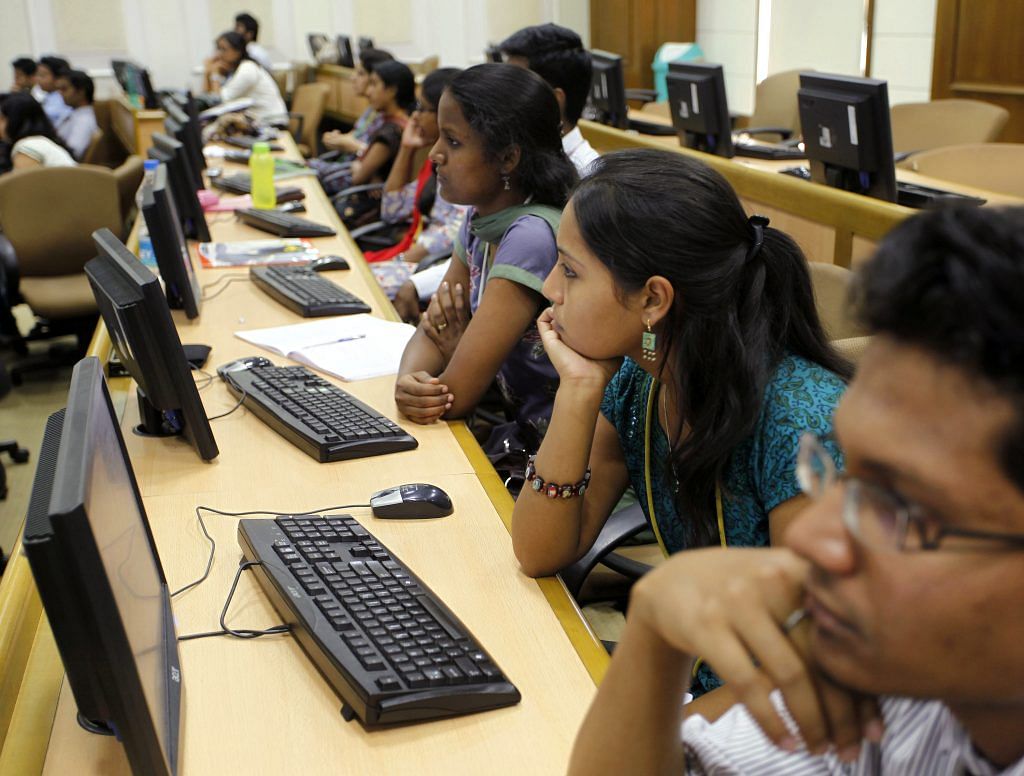Study by Azim Premji University finds that graduates currently make up over one-third of India’s unemployed population.
New Delhi: Graduates and postgraduates are the least likely to find jobs in the country as compared to those without any degrees, according to a study released by the Azim Premji University’s Centre for Sustainable Employment.
The study, which states that unemployment among young and highly educated Indians is the highest in 20 years, has found that those with graduate degrees are the worst off.
Also read: India needs jobs for all, including its Muslims
According to the ‘State of Working India’ report, graduates make up over one-third of India’s unemployed population, more than any other representational demographic (such as postgraduates and those with school degrees).
Of the 23 million people unemployed, nine million have graduate or higher levels of education, as per the report.
The report also found that graduates face the brunt of unemployment even though they are less than 10 per cent of the country’s working age population. Joblessness among those with degrees is three times the national average unemployment rate.
“The number of people with a graduate or higher degree, who are looking for a job, is roughly equal to the entire population of the city of Bengaluru,” says the report.
It further says that the rapid increase in national income, accompanied by higher education, has led to the rise in aspirations of India’s youth but due to the lag in new jobs being created, a larger fraction of the educated youth looking for work are not finding jobs.
“Higher growth has raised aspirations but has failed to generate the kind of jobs that will allow people to fulfil those aspirations,” it says.
‘Jobs not matching skills’
According to the report, the reason that the surveyed unemployed graduates gave for their joblessness is that they did not find employment that matched their skills.
“This obviously points to the issue being not only one of job creation but of the creation of decent and desirable jobs,” says the report.
The data also showed that men form a majority of these educated unemployed youth (15-25 years of age).
“What we have is a larger than ever before population of educated young unemployed men, which is a cause for concern,” the report says.
Also read: Where are the jobs? Crores of post-graduates and engineers apply to be railway gangmen
One reason for this mass unemployment among educated young men, the report claims, is that “almost every public sector recruitment drive is massively over-subscribed.”
In 2017, it states, the West Bengal government held an examination for 6,000 jobs in the Class IV or Group D category, the lowest category of permanent employment in government service. Around 2.5 million candidates appeared for the exam, many of them holders of graduate and postgraduate degrees.
In 2015, 2.3 million applied for around 400 Class IV jobs in Uttar Pradesh, of whom 50,000 were graduates. This shows the amount of pressure on government jobs by the youth employment seekers, which needs to be addressed by the market, says the report.
The study also observes that “people with social or economic support can afford to stay unemployed,” thus those with family wealth are better off, but the disparity along the dimensions of caste and family income, is also very high for the overall working age population.
